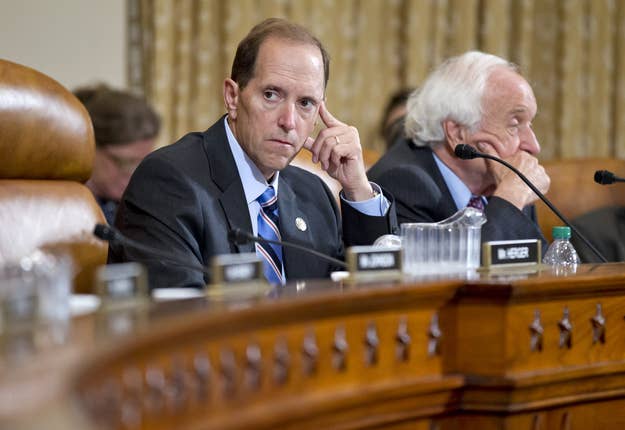
WASHINGTON — Republicans and President Obama have finally found an issue they can agree on, and it may just be the most arcane bit of legislating Washington ever does — corporate tax reform.
But, reflective of the institutional sluggishness that has characterized the modern Congress, the measure still might not become law, should corporate tax reform become mired in a bid toward a larger overhaul of the tax code.
During his closed-door meetings with Republicans last week, Obama told lawmakers that he backs the idea of lowering taxes on corporations without raising government revenues — a key policy goal for the GOP for years.
"(Obama) said he is for revenue-neutral corporate reform," a House Republican lawmaker confirmed. "I've never seen a definitive statement from the president on that issue, so I think that was positive. The big question is, will this be followed up by other meaningful action?"
"If they're revenue-neutral on corporate, we're at the 50-yard line," the Republican added. "We also want revenue-neutral on personal and small business."
The president echoed his support for lowering corporate tax rates during a meeting with Senate Republicans, according to senators who were in attendance, and later with House Democrats.
"The president did make reference to the fact that the rate, as it exists right now for corporations, does put us at a competitive disadvantage with the rest of the world, and we have to find some way to address that," Democratic Rep. Joe Crowley told reporters after the meeting.
But, in his meetings on the Hill, the president also indicated that he would be reticent to support revenue-neutral corporate tax reform were it not coupled with other revenue-positive tax reform, a position House Minority Leader Nancy Pelosi also supports.
Although House Speaker John Boehner has identified tax reform as a priority for this Congress, the major ideological hang-up over revenue could doom a larger overhaul of the federal tax code, a heady feat that has not been accomplished since 1986.
As Democrats insist that revenue from closing some tax loopholes be used to reduce the federal deficit, Republicans say that the revenue should be used to reduce rates for individuals.
And corporate tax reform could fall victim to this larger dispute, despite consensus on that individual issue.
"It has to be done in a comprehensive way," Rep. John Larson, a Democrat on the House Ways and Means committee, said of tax reform. The allure of a larger deal, he said, would be to produce "a package that makes it worth everybody's while."
